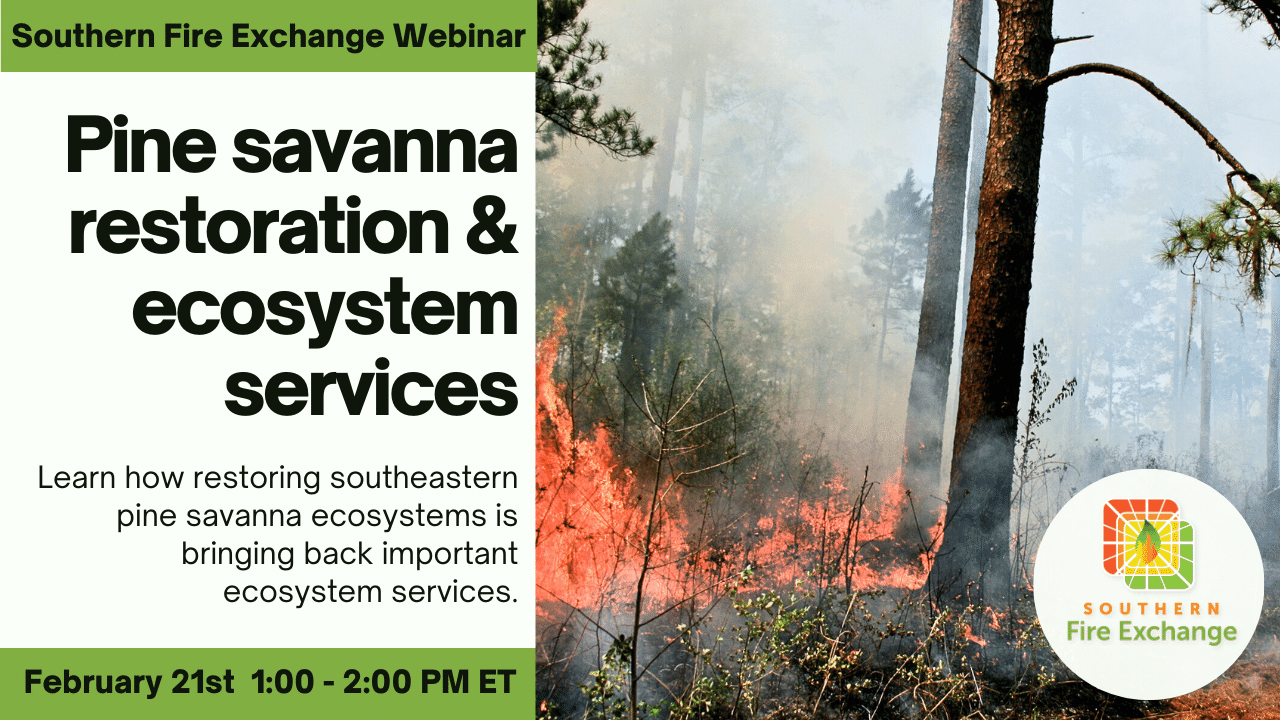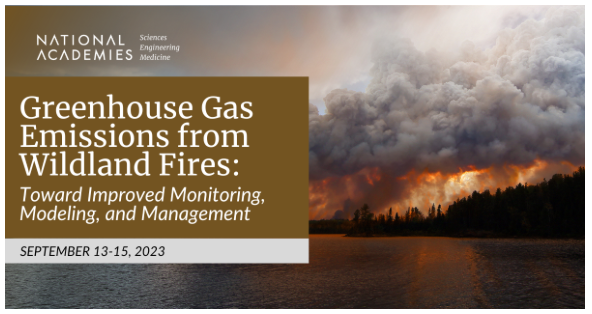A free one hour webinar from Tall Timbers Research Station, the Southern Fire Exchange, and the University of Florida IFAS.
Society of American Foresters CFE Credit Expected.
Presenter:
Cinnamon Dixon, Fire Ecologist, Tall Timbers Research Station
Webinar Description: It is expected that restoring southeastern pine savannas will boost ecosystem services. However, the success of this restoration depends on how well we can restore ecosystems and their services, the speed at which ecosystems are restored, and the tradeoffs between restored ecosystems and other typical land uses. In this presentation, we’re comparing the services provided by pine savannas at various stages of restoration with those from reference pine savannas, as well as other common land uses like row-crop agriculture, improved pasture, pine plantations, and unmanaged forests. This presentation will be of interest to anyone working to manage old field ecosystems in the South. Following the presentation there will be time for audience Q/A with the speaker.
Webinar Requirements: A reliable internet connection and speakers / headphones are required to participate. Webinar audio will be broadcast directly to your computer and may be available via a call-in number. See registration email for more details. Webinar participants do not need a microphone or video camera.
Webinar Recording: If you can’t make the webinar, look for the recording to be posted on the Southern Fire Exchange YouTube Webinar Archive.
Questions? [email protected]
Register for the webinar here: https://ufl.zoom.us/webinar/register/WN__CRTsHZsSNuT2leFXvbfdA
Continue Reading






